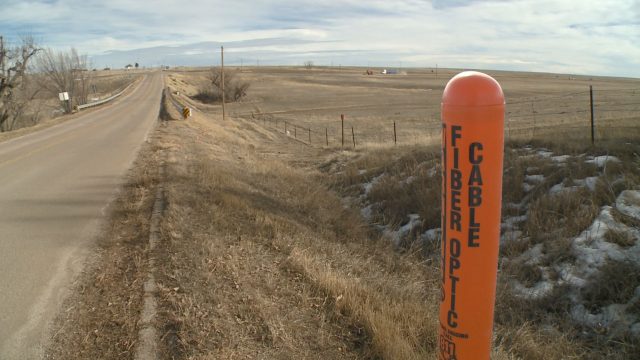Miriah Olzweski: Tax Dollars Being Squandered On Rural Broadband

At the expense of the American taxpayer, the Rural Utility Service (RUS) has a nearly $7 billion budget. RUS is a government funded program with a goal that includes over 550 projects that would provide broadband access to American country sides. RUS received their largest grant in September of 2010 with terms to complete their projects within three years. However, confusion and deception abound when one looks into actions RUS is taking to reach this “goal”.
As of January 2013, RUS had only completed, or near completed, 58 of the 550 projects. More so, instead of providing access in areas that have never seen broadband technology, RUS began overbuilding. RUS spent over $100 million to strength broadband access to areas that already have access. Additionally, in some instances, they added second and third broadband connections, and this connection does not include Wi-Fi.
RUS actions are abusive and manipulative. In 2012, the Inspector General found that RUS and National Telecommunications and Information Association (NTIA) had wasted $9 million dollars in West Virginia by purchasing enterprise-grade equipment for small libraries and warehousing hundreds of routers that had yet to be installed. Additionally, in a report by the Government Accountability Office, RUS has neither shown nor tracked what they have done with their funding. This proves immense lack of transparency with taxpayer dollars and further induces the already incredible waste.
RUS is still wasting taxpayer money, providing inadequate return on investments, and is diluting the much needed aid to rural America. A public fund like RUS could see positive feedback, if for example it was used in areas where there were market failures.
However, the best action the industry could take: eliminate the fund entirely. Taxpayers are spending billions in rural telecommunication efforts with little infrastructure to prove for it.
The best efforts to provide broadband access to those at a disadvantage lies in the hands of the private investors. Between the years 2002-2011, private-sector broadband providers alone invested $65 billion dollars to this cause. These companies take on an incredible amount of risk when they chose this investment, which is easily visible in their actions.
Many technology based companies are moving full speed ahead to bring the basic necessity of broadband access to rural Americans. By putting more money into publicly funded projects, reliable actions taken by private companies are hindered with government regulation. AT&T and DirecTV are working towards a merger that would not only bring broadband access to roughly 13.5 million citizens, but the ground work and maintenance would help create new jobs.
Private sector investments with rural broadband have the potential to create thousands of new jobs, provide return on investment, and allow rural Americans to compete in the digital world, without adding to government waste.
Providing broadband to rural America gives more than a Wi-Fi connection, but rather an edge to the modern competitive market. Many farmers do not realize that companies like CITA- The Wireless Association can help them cut back on fuel costs and diminishing returns. A small town hospital in Georgia wouldn’t have been forced to close doors due to their lack of accessibility to modern technology. With a broadband connection, students in country side schools are no longer limited to minimal resources.
Employment opportunities soar with broadband connections to rural areas. Not only does it provide new jobs in the technology realm, but it opens doors for options such as working from home or telecommuting. The American country side holds great power in our economy. With the help of private investors, this aspect of American culture and economy can flourish.
As of August 2012, nearly 15 million Americans live in rural areas without broadband availability. It is common for these areas to lag behind developments and technology found in urban and suburban America. A rural area without broadband loses access to the best available medicine, impedes agriculture, puts modern education and employment at a disadvantage, and hinders innovation.
Unfortunately, taxpayer dollars are being used inefficiently and are not connecting the people who need this service the most. Rural America needs broadband, and they need it with the help of private investors.




